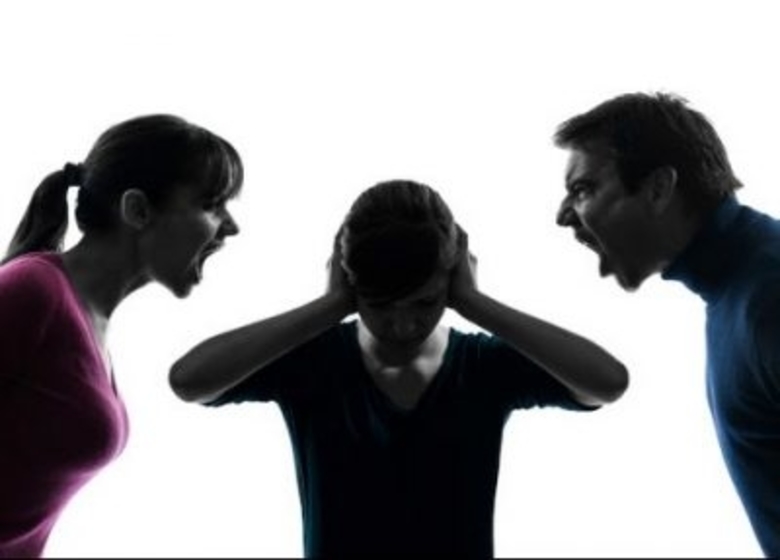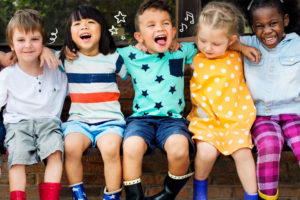Why Yelling At Your Kids Is Not A Good Idea?
How many times in your parenting life have you thought to yourself after yelling at your kids, “Well, that was a good decision.” Its never a good idea.
Emotions can get the best of you anytime and every parent knows that. Somehow children can really push those buttons you didn’t know you had. And before you know it, you are bursting out on the top of your lungs.
It’s normal and every parent goes through this frustration. But you must know that it is not normal to yell at your kid every time. Parents assume that because everybody does it and therefore, yelling is harmless. But that’s not the case. Yelling actually belittles kids and undermines the parent-child bond. The good news is that you can change the way you talk to your children, switching from a yelling monologue to a respectful dialogue.
Why Shouldn’t Parents Yell?
There can be no definite reason for this because it differs from each and every situation. Parents usually get overwhelmed and angry which comes out as a raised voice. They yell because they’re getting pulled in a million different directions and something happens that makes them frustrated. They see their kids fighting or the child is doing something they don’t approve of, and so they just kind of lose it. It’s some kind of an automatic response. But you should know that it doesn’t make you look authoritative. Instead it makes you look out of control on front of your kids.
Although, it’s not the ultimate way to really solve the situation. Your child may get quiet and behave for some time but it won’t be effective for the long-term. Your ultimate goal is to correct your child’s behaviour or attitude. Yelling on the other hand, will only result in your child being afraid of you and losing a good bond.
Children tend to learn more from what they see and hear instead of what is told to them. If anger and associated aggression like shouting is part of what a child perceives as “normal” in their family, their behavior will reflect that. Not only are you modelling screaming as a conflict-resolution strategy, but you also might be making things worse.
The final truth about yelling is that we don’t feel very good about ourselves when we launch into a tirade on our progeny. And it often frightens the kids to be on the receiving end of angry words. It makes them anxious and logically, more prone to yelling themselves. Getting loud is not communication. It is, however, damaging to a sense of trust and stability and can lead to a particularly frought parenting future. Therefore, it should be your priority to manage your emotions.
Types of yelling
There are three types of yelling parents generally use. The first one is the yelling that is more like stern, loud talking. You may consider it as – “raising your voice.” This kind can often be tuned out by kids, as it doesn’t tend to generate fear. The next is the yelling that’s caused by anger and rage. This type can scare kids and emotionally damage them when it’s chronic. Finally, there’s the good type of yelling which parents use when their child is about to touch a hot stove or walk into the middle of the road. Basically, yell to warn, but speak to explain.
Negative Effects Of Yelling At Kids

Image source – Fatherly
It’s normal to get frustrated with your children, especially if they are misbehaving. But the way you express this frustration and deal with the situation can have major implications on their personality development and their long-term health.
Some long-term effects of yelling on your child are:
- It affects their behavior problems
- Changes the way their brain develops.
- It may lead to depression.
- Affects their physical health.
- It might cause chronic pain.
Some alternatives to choose from instead of yelling
- Know your triggers and avoid them.
- Give your kids a warning.
- Taking time out will give you better self-control.
- Know your child’s normal behaviour.
- Make realistic expectations for your kids.
- Recognize when things are about you more than your child’s.
- Realize that yelling is just not effective.
- Instead of shouting anything, say “Stop it”.
- Inhale, exhale and keep repeating until you calm down.
- Address the bad behaviour calmly.
- Use a firm but soft tone.
- Teach your kids how to validate their feelings without validating their behaviour.
- Praise for their good behaviour.
- Put yourself in their shoe to understand their behaviour before you proceed to solve it.
- Understand you are not perfect. No one is perfect.
Understand your own emotions
If your anger is often spilling onto your children and you have trouble controlling your temper on a regular basis, recognizing that you have a problem is the first step toward learning to manage it. This will help you feel better about yourself and communicate in a calm and loving way with your children.
Some of the signs that point to an anger problem include:
- getting inappropriately angry over seemingly minor issues
- experiencing stress-related symptoms like high blood pressure, stomach pain, or anxiety
- feeling guilty and sad after an anger episode, yet seeing the pattern repeat often
- engaging in conflicts with other people instead of having respectful dialogues
A therapist can help you develop ways to keep calm and prevent outbursts and also help you mend the damaging effects of anger on your relationship with your loved ones.
Nobody is going to stifle themselves around their kids all the time, and nor should that. That’s not what it’s like to be a person. But if yelling is your default, it’s time to understand that it’s a harmful long-term parenting strategy.
Also read: Know how to be a good parent













